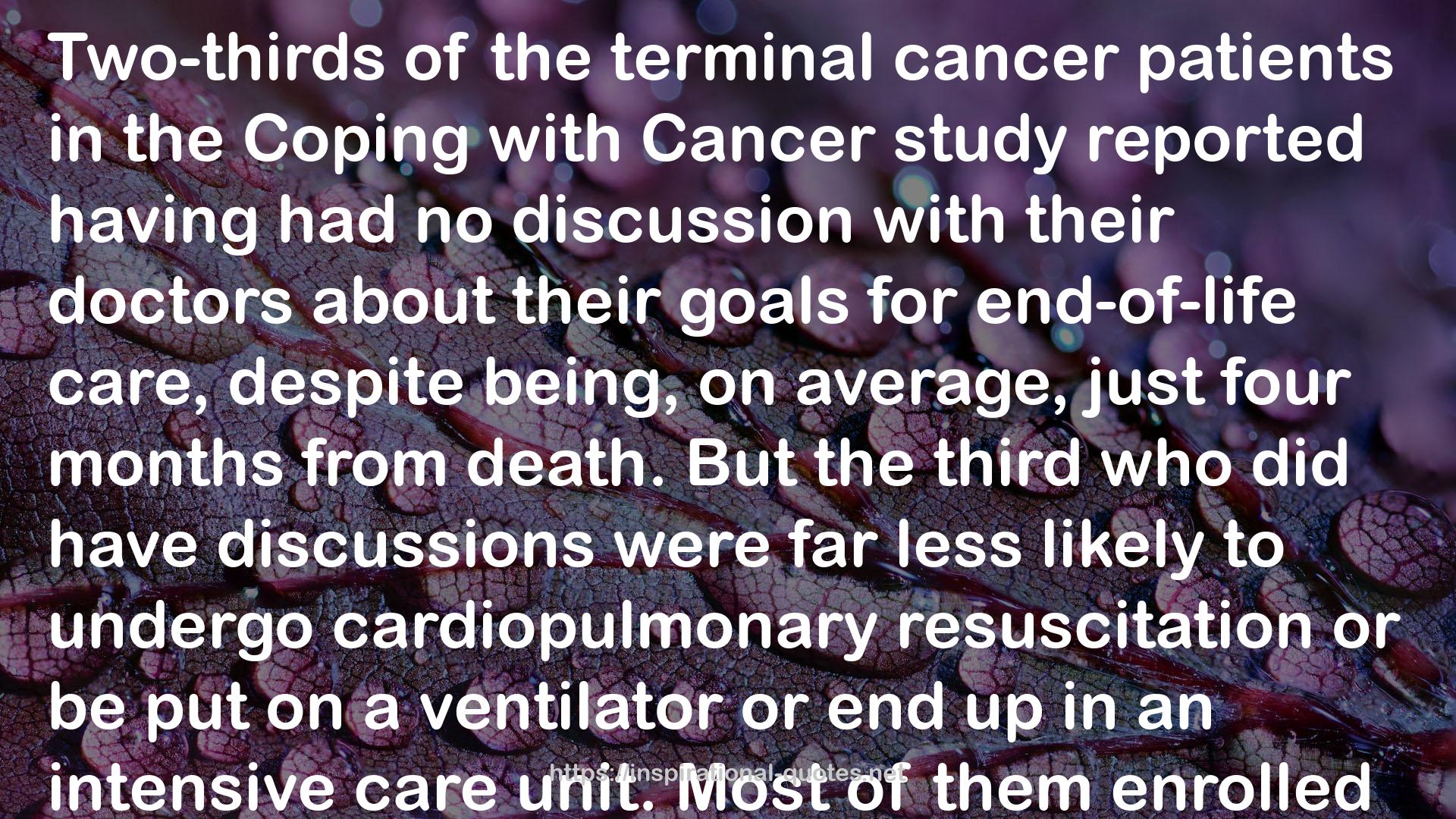" Two-thirds of the terminal cancer patients in the Coping with Cancer study reported having had no discussion with their doctors about their goals for end-of-life care, despite being, on average, just four months from death. But the third who did have discussions were far less likely to undergo cardiopulmonary resuscitation or be put on a ventilator or end up in an intensive care unit. Most of them enrolled in hospice. They suffered less, were physically more capable, and were better able, for a longer period, to interact with others. In addition, six months after these patients died, their family members were markedly less likely to experience persistent major depression. In other words, people who had substantive discussions with their doctor about their end-of-life preferences were far more likely to die at peace and in control of their situation and to spare their family anguish. "
― Atul Gawande , Being Mortal: Medicine and What Matters in the End
